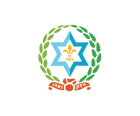Ori Shaham Sikums Refugee Center Mission 4
My name is Ori Shaham and I’m the Rosh Chinuch (youth educational leader) for Hashomer Hatzair USA. Three weeks ago I joined the 11th and 12th Hashomer Hatzair delegations to the TESCO refugee camp in Przemysl, which is on the Polish border with Ukraine. Volunteering with these delegations in the Hashomer Hatzair children’s center was perhaps the most meaningful thing I have ever taken part in, and I feel so fortunate to have been able to join.
I wanted to share some of my experiences and reflections with you all. Whatever I can’t describe in words, I hope the pictures and videos will do some justice :) There is a lot here, so I’ve split it up into sections.
The work we’ve done in the children’s center and our humanitarian aid in Ukraine has been possible because of the generosity of our community. Going forward, we also plan to create a youth center within Ukraine, in Kharkiv, to help with the rebuild of the city. Many of you have donated to make this possible already. If you would like to donate again or spread the word, you can do so here: https://campshomria.com/blogs/news/yachad-for-ukraine.
Overcoming a Language Barrier, and Learning The Important Words:
Lots of friends have asked me since I got back: how were you able to communicate with the kids without speaking Ukrainian or Russian? For starters, each delegation has at least one, and usually two Russian or Ukrainian speakers, who are able to communicate with kids or parents in either language if anything comes up.
Beyond this though, I noticed quickly how universal the language of play and care are. With body language, smiles, and a lot of laughs, we were able to communicate and connect over shared games. The kids were eager to play, and wanted to help us communicate just as much.
Google Translate was also a big help. Especially with the older kids, I was able to have lengthy conversations through the voice transcription features. We also made little reference guides of important words and phrases. As an educator who has worked with all sorts of age ranges in the past, I found a lot of joy and humor in figuring out which words are the absolutely most important to know when trying to hold the attention of kids who are running around in a different language. Here’s a list of a few in transliterated English:
- Zavtra! Tomorrow! This was a critical word when cleaning up! The promise of being able to play tomorrow is crucial when convincing a kid to put a toy down for the time being.
- Davai: Come on, or Yalla! As the Israelis and Arabic speakers among us know, there’s nothing like a word when running activities for kids that succinctly gets together “get moving!” together :)
- Niet! — No! (with all kids, an important word to know, for safety and setting boundaries.)
- Da – yes
- Spasiva: Thank you!!
- Bella Diet: Great job!
- Skolko Tebe Let: how old are you?
- Kok tiba zivit? What’s your name?
- Kakdilla: How are you?
Of course, it was not lost on me that the non Ukrainian or Russian speakers in the delegation like myself were also shielded from a lot of the pain the kids carried with them, something the Russian speakers in our delegation absorbed more. At the same time, I wondered if perhaps this emotional shield allowed us to also be there in full strength, and provide the energy and laughter the kids in the center were so deserving of.






Leave a comment